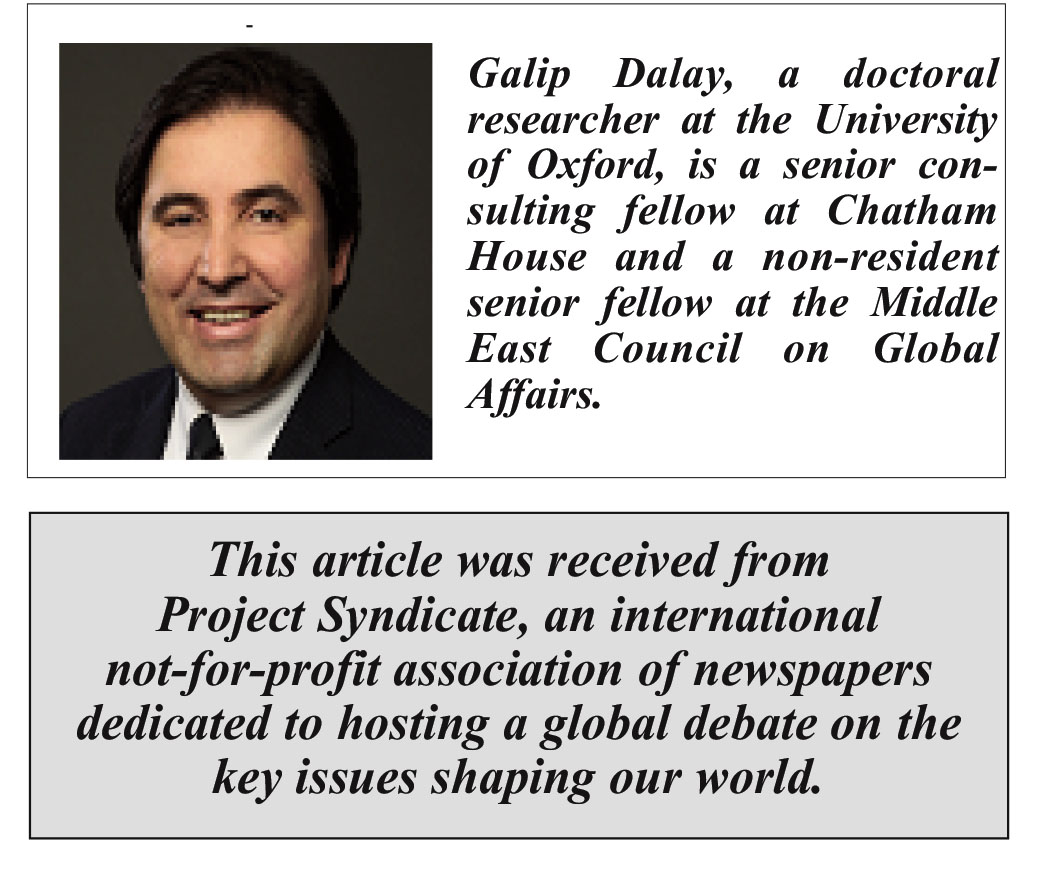OXFORD – In September 2015, Russia intervened militarily in Syria’s civil war, propping up Bashar al-Assad’s dictatorship as it teetered on the brink of collapse. This was the high point of Russia’s resurgence on the world stage, and President Vladimir Putin’s ability to tilt the war in Assad’s favor helped make him a regional power broker. In addition to enhancing Putin’s stature, the operation led to strategic gains that gave Russia leverage vis-à-vis regional and Western powers.
Syria was thus a status symbol for the Kremlin. Putin, who sees Russia as a great power on par with the United States and China, attaches much importance to projecting that image in the former Soviet bloc and, more importantly, beyond it. If Russia’s war in Ukraine is about identity and empire, its presence in Syria was about prestige and status. But after Assad’s rapid fall from power earlier this month, it appears that Putin has had to sacrifice the latter for the former.
The collapse of Assad’s regime will also reconfigure Russia’s role in the Middle East and the Mediterranean. For starters, it might improve relations between Turkey and the West, as they engage in dialogues over Syria’s future, while driving a wedge between Turkey and Russia.
This would be a blow to the Kremlin, whose close ties with Turkey are an outgrowth of the Syrian conflict. Turkey and the US had conflicting goals in the civil war and viewed each other’s local partners with suspicion, deepening a rift between the countries. By contrast, Turkish President Recep Tayyip Erdoğan and Putin learned how to manage their competing interests, especially after 2016, in Syria. (The two leaders tried to adopt a similar approach in Libya, where they support opposing sides in the long-running conflict, but to less effect.) Moreover, were it not for the Syrian civil war, Turkey would almost certainly not have bought the Russian-made S-400 missile system, which further strained its relationship with the US. Likewise, with Assad’s downfall, Turkey has broken its previous geopolitical encirclement by Russia on its northern, southern (Syria), and eastern borders.
Putin has arguably done more than any other Russian leader to build a strong presence in the Mediterranean, succeeding where the czars and the Soviets failed. After intervening in Syria’s civil war, Russia upgraded and expanded its erstwhile modest naval base in the port city of Tartus, making it permanent, and built the Khmeimim air base in Latakia governorate. But the future of both bases is uncertain, because Syria’s new leadership – irrespective of any initial deal they might cut with Putin – is unlikely to allow a Russian military presence as robust as that under Assad.
With its foothold in Syria, the Kremlin also sought to cultivate closer ties with the Gulf countries. In 2017, Saudi King Salman bin Abdulaziz al-Saud became the first Saudi monarch to visit Moscow, and the Middle East became a lucrative market for Russian arms exports. But since the Ukraine war began, the Russian defense industry has focused primarily on meeting the country’s domestic needs. And the lackluster performance of Russian weaponry on the battlefield in Ukraine, coupled with the threat of secondary Western sanctions, has dampened countries’ appetite for such purchases. Russia’s declining power and prestige in the region will only accelerate this trend.
After 2015, the Kremlin came across as decisive, predictable, and dependable to many of the region’s leaders, whereas the US was seen as faltering, erratic, and unreliable. This fueled the popular perception that Russia’s regional role was expanding as America’s was diminishing, implying that the Middle East – like the world more generally – was moving from a Western-centric past to a multipolar future, and that Syria was emblematic of this shift. Middle Eastern countries have since undertaken a geopolitical balancing act, which seems likely to continue. But with Assad’s fall, Russia might lose its status as one of the poles of attraction.
In terms of rolling back Russian power in the region, the fall of Assad, together with the degradation of Iran’s “axis of resistance,” is on par with, if not worse than, Egypt’s expulsion of Soviet military personnel in 1972 and the Soviets’ defeat in Afghanistan. This does not mean that the Kremlin is out of the picture. After all, Iran – one of Russia’s key regional partners – remains a major player, despite being weakened. Similarly, Assad may be out, but Russia has ties with other Syrian groups that could make some gains in the coming power struggles.
Beyond Syria, Russia has a long-standing relationship with Algeria, a considerable role in Libya, and close relations with Egypt and Sudan. Putin will probably now try to further strengthen Russia’s presence in Libya to maintain its role in the Mediterranean. But these ties can’t compensate for what Russia has lost in Syria – an emblem of great-power status. Putin’s inability – despite his posturing – to prevent Assad’s ouster has shown Russia to be a regional or a middle power with nukes and gas, obviously unable to maintain its great power pretensions.
Copyright: Project Syndicate, 2024.
